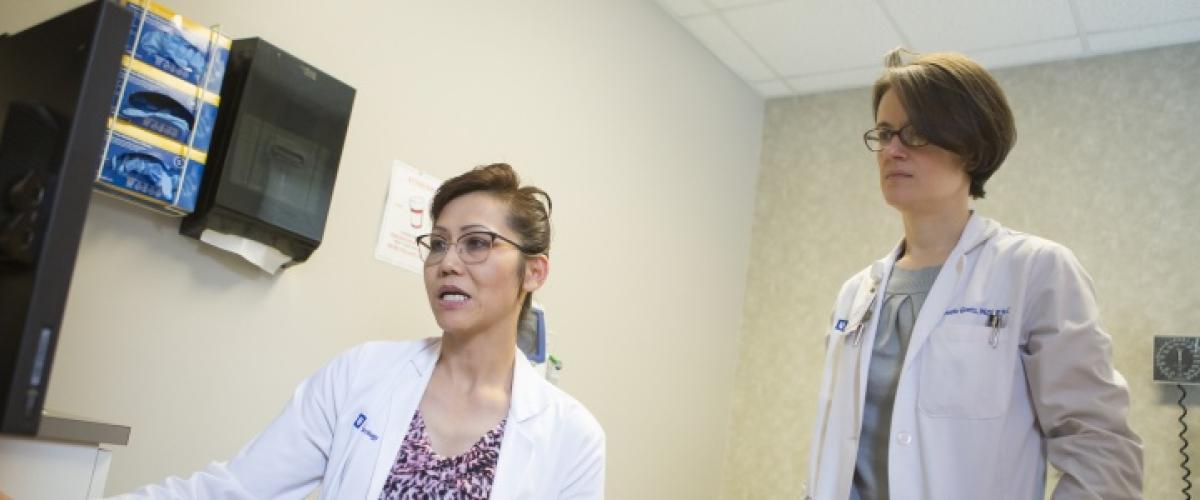
The Duke Neurology Advanced Practice Provider (APP) Residency Program was created to solve a longstanding problem in neurological care. Neurologists looking to hire APPs (nurse practitioners and physician assistants) into their practices struggled to find ones with neurology training, and APPs without neurology training lacked the confidence or experience to perform optimally as a member of the neurology care team. While both types of APPs have clinical experience before entering their degree programs, their training programs are primarily aimed at core areas of medicine, including internal medicine, family practice, pediatrics, surgery, and obstetrics and gynecology. Neurology is not a common component of their training.
Upon graduation, APPs looking to join a neurology practice must be trained to be able to help neurologists manage neurology patients. This can either be done on the job, which leads to costly and often inadequate training or this training can occur under the supervision of academic neurologists with experience in teaching. We believe the latter is preferable as it removes the burden of training from the future employer neurologist and provides a more well-rounded and comprehensive foundation for the APPs. Neurology training programs for APPs are mutually beneficial for the APPs and for neurologists.
The contributions of APPs in our department cannot be overstated, and being able to hire well-trained APPs with experience in neurology is invaluable to us. Our APPs work in both inpatient and outpatient clinics, not to replace neurologists, but to work together with them to optimize patient care. APPs assist our practice by seeing patients referred to them by our neurologists for ongoing chronic care management, thereby freeing up the attending neurologist to see new patients and reduce our excessive wait times. In some areas, they are well trained to see new patients, with back-up when needed by their supervising attending.
On the inpatient service, team APPs allow the residents to see the patients on the team for educational content but not necessarily do the daily work (progress notes, discharge summaries, etc.) on all patients. This allows us to provide more consistent care to a larger number of patients and maintain an optimal education to service ratio for our neurology residents. Additionally, because the APPs do not rotate to other services, they provide continuity for the team and help build relationships with the staff on the unit. The residents have been so appreciative of the support they receive from the inpatient APPs, they have given out awards to them.
Based on outcome data we have obtained from our APP graduates and supervising neurologists, we are meeting our goals (Morgenlander, Walker. AAN Poster Session, May 2019). Our APP graduates help expand the practice of the faculty they join, and the professional lives of both our APP graduates and staff are improved. This program has been a positive addition to the education offerings by our Department. Therefore, the program, now in its sixth year, continues to have great support from our department.
Medicine is a team endeavor. We need to work collectively to meet the challenges of providing the best care possible to our patients and the best education possible to our trainees. We take this role very seriously and are honored to have trained so many talented neurology professionals at Duke.
Sincerely,
Joel Morgenlander, MD
Professor of Neurology and Orthopeadic Surgery
Program Director, Duke Neurology APP Residency Program
Andrew Spector, MD
Associate Professor of Neurology
Associate Program Director, Duke Neurology Residency Program